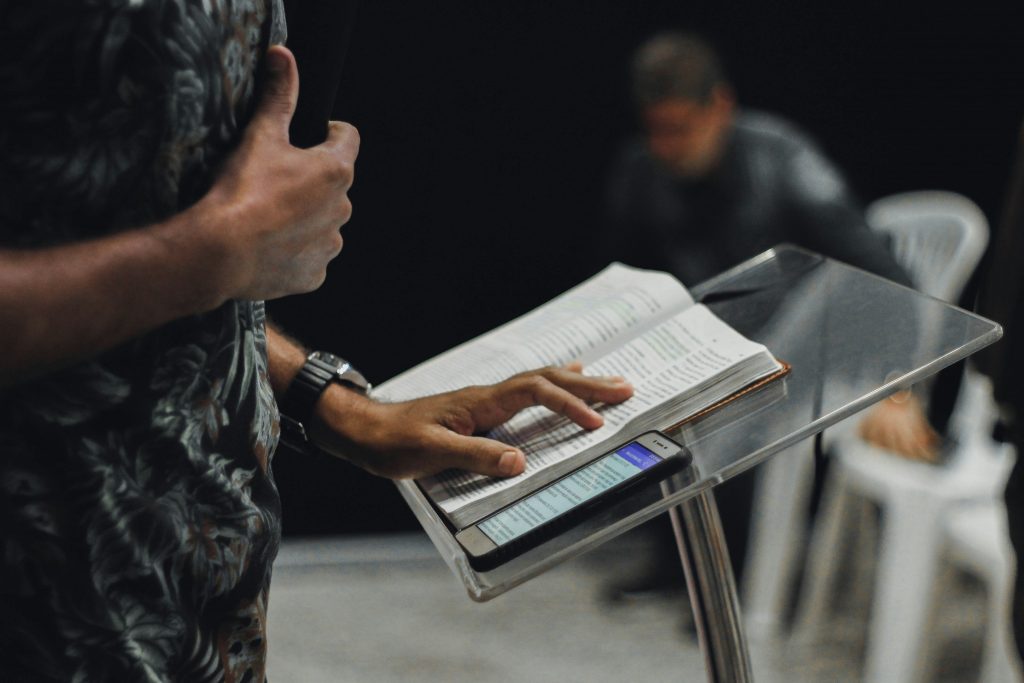141 Arkansas Students Enrolled to Study Bible Academically at School this Semester

Data from the Arkansas Department of Education shows 141 public school students have enrolled in courses to study the Bible academically this semester.
Act 1440 of 2013 and Act 1016 of 2019 let public schools offer elective, academic courses on “the Bible and its influence on literature, art, music, culture, and politics.”
The law says the course must be objective and nonsectarian, and it must meet the same academic standards as other elective courses offered in public schools. Anyone wishing to teach the course must be licensed to teach in the State of Arkansas.
According to the Arkansas Department of Education’s academic framework for the classes, the course is offered as a one-semester elective in which students learn about the Bible and its influence on literature, art, music, and culture.
Over the past 12 years, different school districts in the state have chosen to offer academic courses on the Bible under state law. New data from the Arkansas Department of Education shows at least 141 public school students have enrolled in elective, academic courses on the Bible at 13 schools so far for the 2025-2026 school year.
It’s good that Arkansas lets students learn about the Bible at school. After all, no single book has been more influential on our civilization. Of course, Christians believe the Bible is meant to be learned and lived out in daily life. Still, studying the Bible academically is a great opportunity.
Below is a list of school districts offering courses on the Bible this semester.
| SCHOOL DISTRICT | COURSE | NUMBER OF STUDENTS |
| SEARCY COUNTY SCHOOL DISTRICT | Academic Study of the Bible (0.5 credit) | 27 |
| VAN BUREN SCHOOL DISTRICT | Academic Study of the Bible (0.5 credit) | 24 |
| SOUTH SIDE SCHOOL DISTRICT (Van Buren) | Academic Study of the Bible (0.5 credit) | 17 |
| NETTLETON SCHOOL DISTRICT | Academic Study of the Bible (0.5 credit) | 16 |
| MAGNOLIA SCHOOL DISTRICT | Academic Study of the Bible (0.5 credit) | 13 |
| MARMADUKE SCHOOL DISTRICT | Academic Study of the Bible (0.5 credit) | 11 |
| FORDYCE SCHOOL DISTRICT | Academic Study of the Bible (0.5 credit) | 7 |
| LONOKE SCHOOL DISTRICT | Academic Study of the Bible (0.5 credit) | 7 |
| DEWITT SCHOOL DISTRICT | Academic Study of the Bible (0.5 credit) | 5 |
| SOUTH CONWAY COUNTY SCHOOL DISTRICT | Academic Study of the Bible (0.5 credit) | 4 |
| DES ARC SCHOOL DISTRICT | Academic Study of the Bible (0.5 credit) | 4 |
| ACADEMICS PLUS PUBLIC CHARTER SCHOOLS | Academic Study of the Bible (0.5 credit) | 4 |
| PREMIER HIGH SCHOOLS OF ARKANSAS | Academic Study of the Bible (0.5 credit) | 2 |
| Total | 141 |
Articles appearing on this website are written with the aid of Family Council’s researchers and writers.





